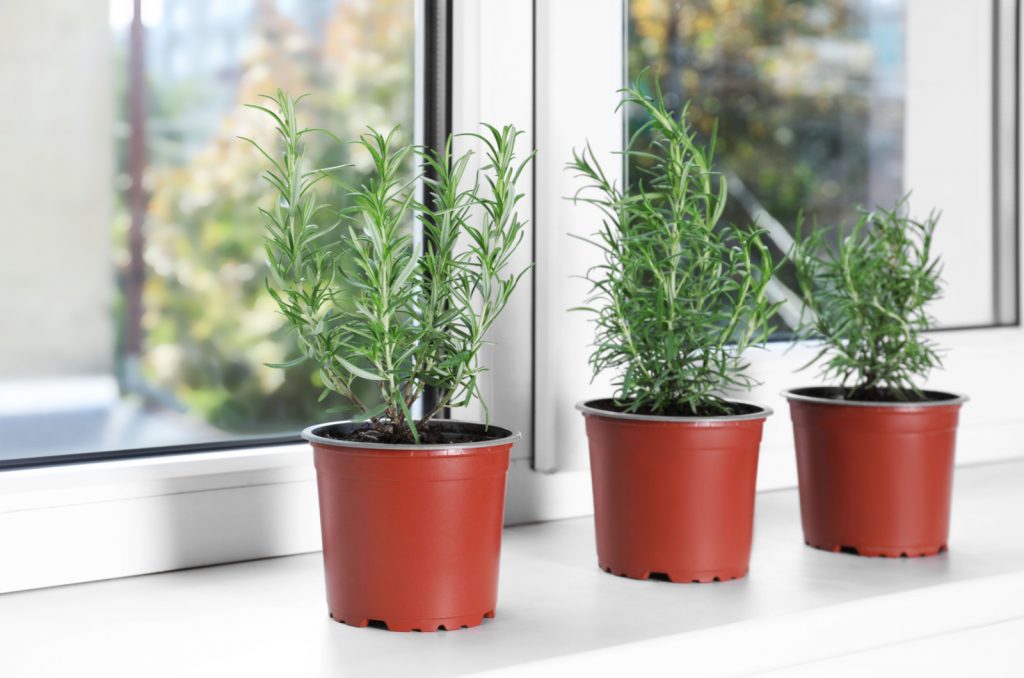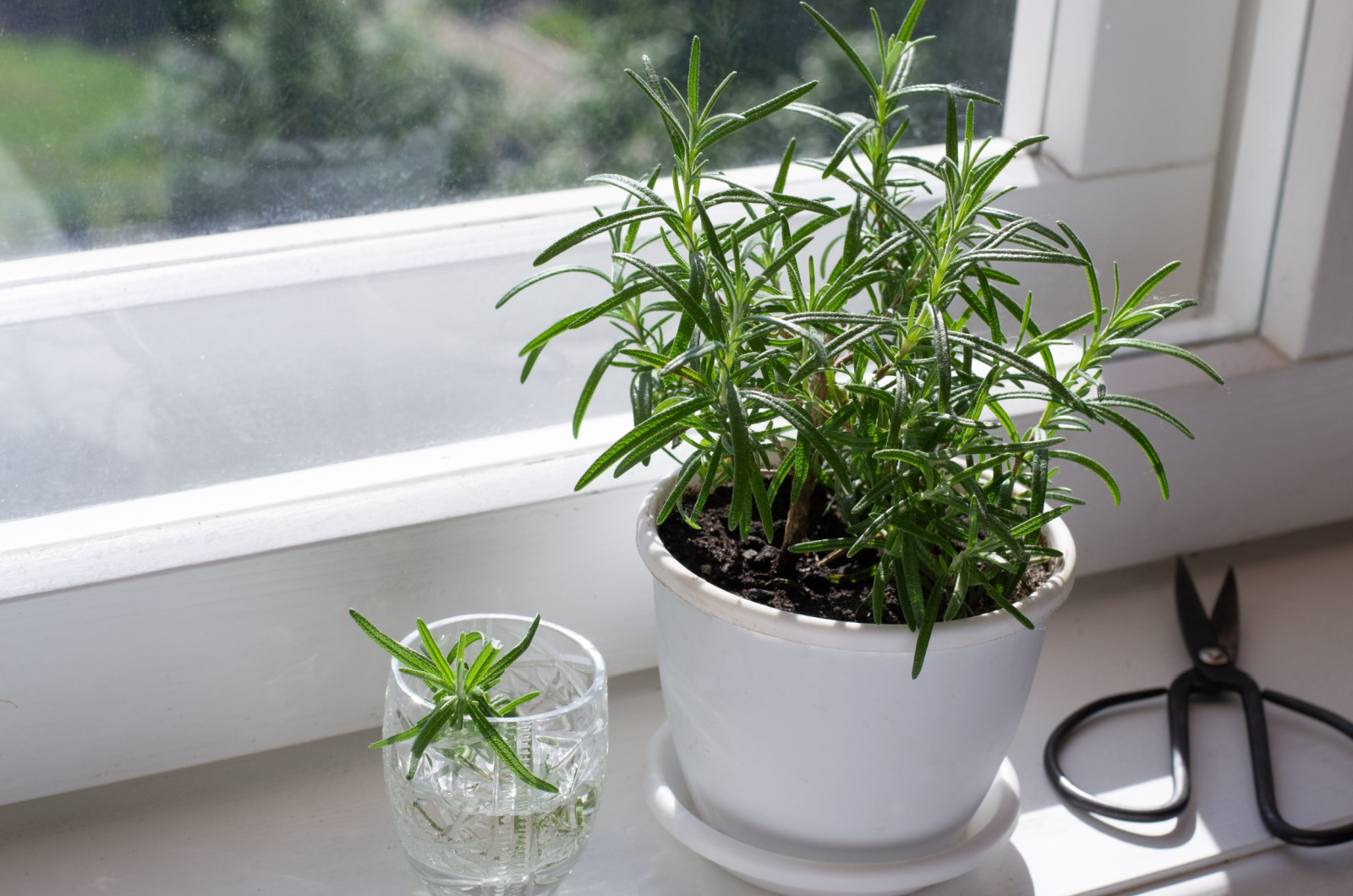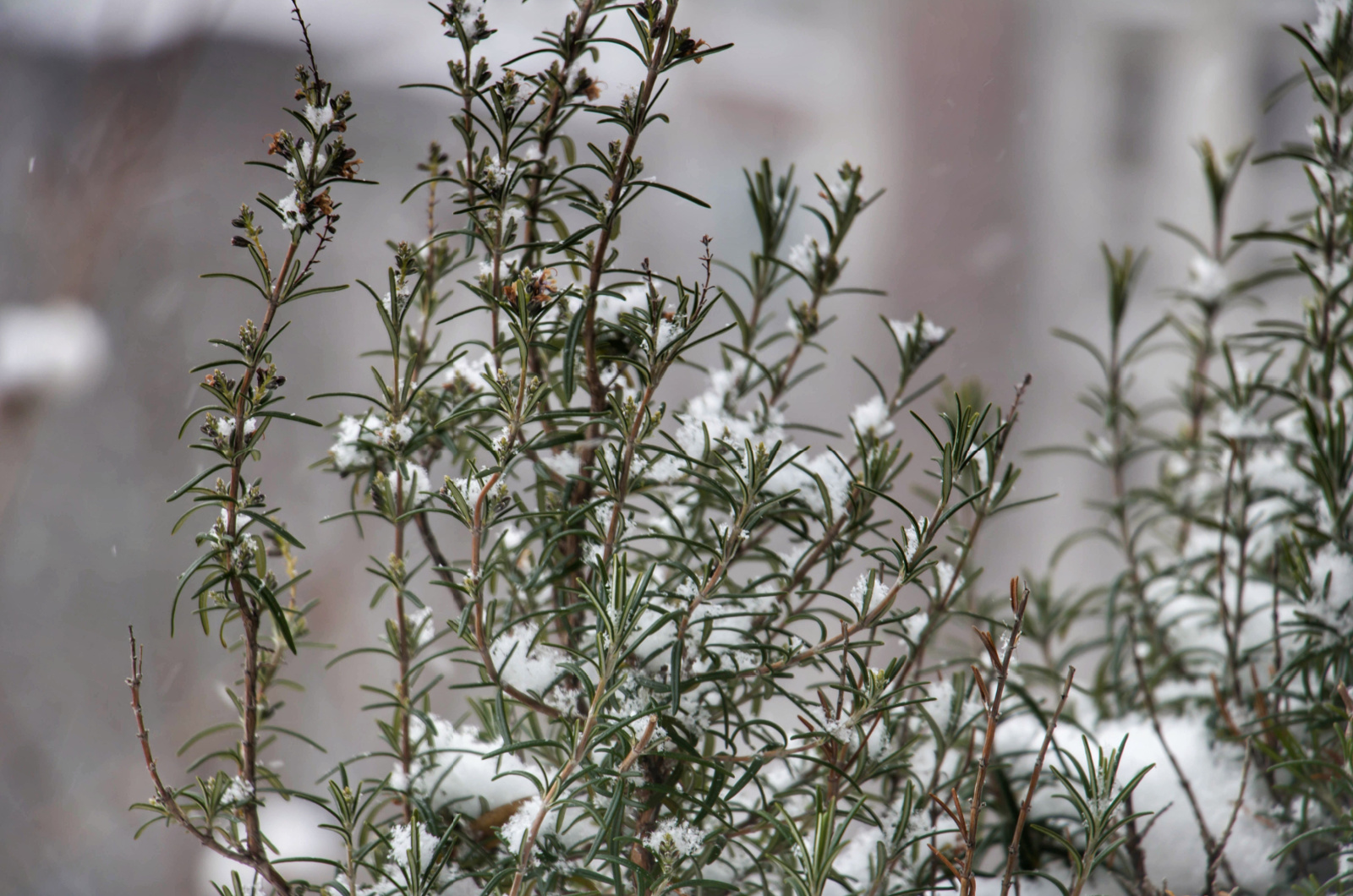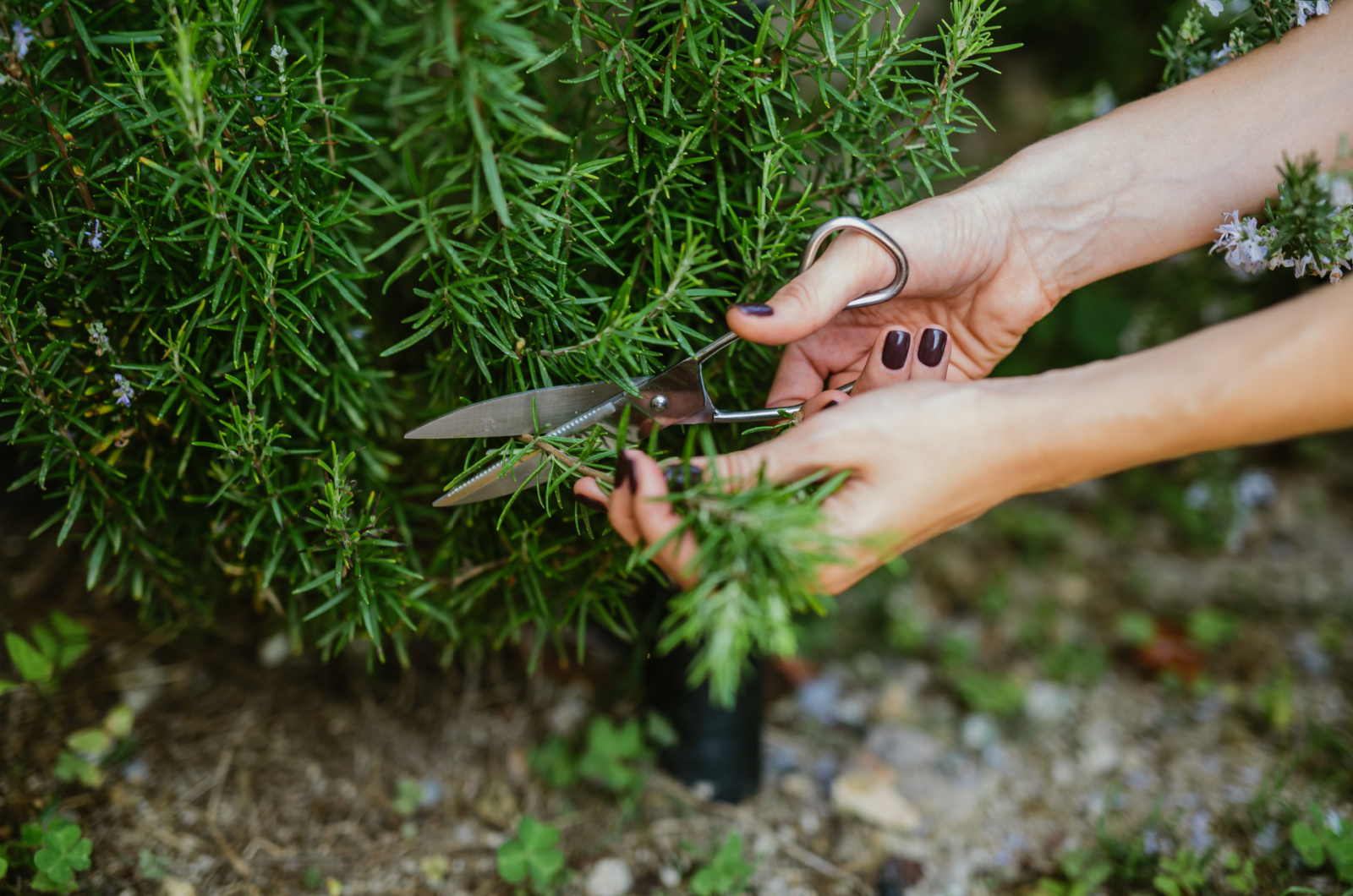Taking care of your rosemary plants during winter is crucial to keeping them healthy and thriving. Rosemary can be a bit sensitive to cold temperatures, so it’s important to provide the right care to ensure they survive the winter months.
In this article, we’ll walk you through the essential steps to care for your rosemary during the winter season, so you can enjoy its fragrant foliage and culinary benefits all year round!
Overwintering Rosemary Indoors
Rosemary is a Mediterranean herb that thrives in sunny climates. It does best in USDA hardiness zones 8 through 11, where you can leave it to grow outdoors. However, if you live in zones 7 or colder, then you should grow rosemary as an annual that is brought indoors during the winter season.
Take An Entire Plant Indoors…
If you want to preserve your entire plant, then you carefully transfer it to a pot and bring it indoors. You should dig out the plant in the fall before the first frost arrives – ensure that the root ball is not damaged during this process.
Once you’ve dug out your plant, find a larger pot that can fit your rosemary and fill it with a rich potting mix. The plant will need a few days to adapt to its new environment.
Here’s how to choose the best rosemary planter!
…Or Use Stem Cuttings
In case you don’t want to dig out your entire plant, you can always take rosemary cuttings and grow a whole new plant!
You can take either root or stem cuttings, dip them in a growth hormone, and put them in soil or water (whichever you think is better). The cuttings should be between 4 and 6 inches long – always make sure to take them from healthy branches!
Rosemary cuttings might take four to eight weeks to produce roots, so be patient!
Provide Proper Care
No matter if you’ve brought your entire plant indoors or taken a stem cutting to grow and develop, it’s important to provide them with proper plant care. Don’t worry, taking care of rosemary is easy-peasy!
Make sure to keep them in a window with bright, indirect light where they can receive about six to eight hours of light during the day. Give your rosemary some water whenever the soil feels dry.
If the leaves of your rosemary are crispy, you might want to improve the humidity indoors – simply put your plant near a humidifier or create a pebble tray.
Don’t Forget To Harden Plants
Before you bring your indoor plants out to the garden again, it’s important to harden them for a couple of days so that they can adapt to their new environment. Simply put your rosemary outdoors and bright it back indoors at night.
It will adapt to outdoor weather in a matter of days, so you can plant it in your herb garden where the plant will grow and thrive without a doubt.
Overwintering Rosemary Outdoors
If you live in a warmer area, then you can simply leave your rosemary outdoors during the winter season. However, this doesn’t mean that the plant should be left alone without any protection from the lower winter temperatures.
Keep on reading to find out how you can overwinter rosemary outdoors.
Use Cones Or Row Covers
Invest in plant cones or row covers designed for winter protection. These act like mini greenhouses, trapping heat and shielding your rosemary from harsh winds and frost. Secure them firmly in place to prevent them from blowing away.
Add Mulch
Apply a generous layer (3 to 6 inches) of mulch around the base of your rosemary plant. Mulch helps to insulate the soil, keeping it warmer and protecting the roots from freezing temperatures. Use organic mulch like straw, hay, or wood chips.
Also read: Wood Chips Vs Mulch: Which One Is Better For Your Garden?
Pruning & Mulching
You can also prune and mulch your lovely rosemary plants – simply cut back plants to 6 inches after the first frost in the fall and avoid cutting the woody stems. After this, add about 4 to 6 inches of mulch (use straw, leaves, or other natural mulch).
By adding mulch to dormant rosemary plants, you can further shield them from cold weather. Just make sure the mulch is piled loosely enough to allow the plants to still “breathe”. Add a wood or metal frame around larger plants to keep the mulch in place.
Mulching may help potted herbs live outside, but you should wrap frost-sensitive pots and containers with burlap, bubble wrap, or old blankets to prevent breakage.
Since rosemary plants remain dormant throughout the winter, they don’t mind being lightly mulched; however, remove the mulch as soon as spring arrives to let the plants begin growing.





